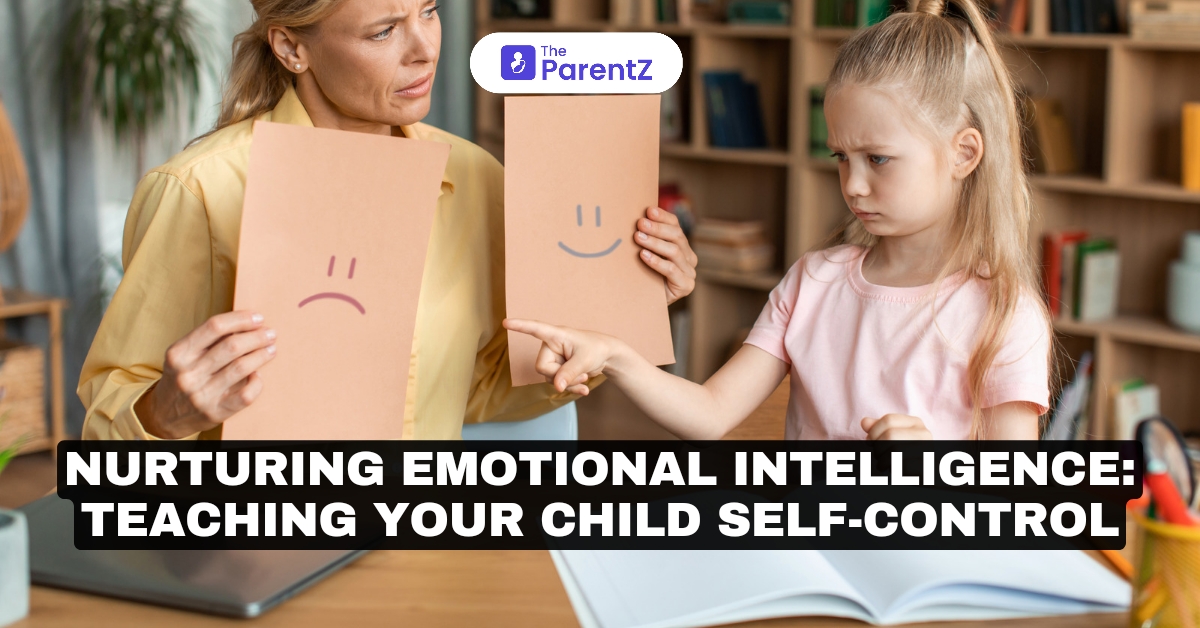Imagine a child overwhelmed by a wave of emotions. They feel a mix of anger, frustration, and sadness, but they don’t know how to express these feelings in a healthy way. They might lash out, withdraw, or simply shut down. This struggle to manage emotions is a common experience for many children. It can also lead to significant challenges, both socially and emotionally, as children attempt to deal with their feelings on their own.
Understanding the Difference: Suppression vs. Control
It is essential to recognize the distinction between suppressing emotions and controlling them. Suppression involves denying or ignoring feelings, which can lead to a buildup of unresolved emotions that may manifest in harmful ways later on. This approach can create a cycle of emotional distress, where children feel compelled to hide their feelings, leading to anxiety, depression, or even physical health issues.
In contrast, controlling emotions means acknowledging them and choosing how to respond constructively. This process involves understanding emotions as temporary states that can be managed rather than avoided. Teaching children to control their emotions allows them to express their feelings appropriately while minimizing negative impacts on themselves and those around them.
The Impact of Gender Stereotypes
In a society that often imposes rigid gender stereotypes, children may feel pressured to express their emotions in ways that suit societal expectations rather than their authentic selves. For instance, boys might be encouraged to suppress feelings of sadness and vulnerability, while girls may be criticized for expressing anger. This societal conditioning can hinder emotional development and lead to confusion about how to express feelings healthily.
As parents, it is important to create a setting where our kids feel safe enough to express their feelings without fear of judgment. This involves actively listening to their feelings, validating their experiences, and encouraging open conversations about emotions. By doing so, we can help our children navigate their emotional landscape more effectively.
Strategies for Helping Children Develop Self-Control
Model Emotional Regulation
Children learn a lot from watching their parents. We can constructively demonstrate how to handle feelings by modeling healthy emotional regulation. This can include expressing emotions openly, discussing how to cope with difficult feelings, and showing that it is okay to seek help when needed.
Teach Mindfulness Techniques
Mindfulness practices can significantly enhance emotional regulation. Techniques like deep breathing, meditation, or simply taking a moment to pause can help children become more aware of their emotions as they arise. Research indicates that mindfulness can improve emotional intelligence and reduce impulsivity, enabling children to respond to their feelings more thoughtfully rather than reactively.
Encourage Expression Through Creative Outlets
Creative activities like drawing, writing, or playing music can provide children a safe space to express their emotions. Encouraging children to articulate their feelings through art or storytelling can help them process complex emotions and develop a deeper understanding of themselves.
Utilize Cognitive Behavioral Techniques
Cognitive Behavioral Therapy (CBT) techniques can be beneficial in teaching children how to challenge negative thought habits and substitute them with more productive ones. For example, parents can guide children in recognizing when they feel overwhelmed and help them develop strategies to reframe their thoughts and feelings positively.
Foster Problem-Solving Skills
Helping children develop problem-solving skills can empower them to handle emotional challenges more effectively. This can involve discussing hypothetical scenarios and encouraging children to think through possible responses. By equipping them with tools to navigate emotional situations, we can foster resilience and self-control.
Conclusion
Remember, emotional regulation is a lifelong skill. By providing our children with the tools and support they need, we can help them develop a healthy relationship with their emotions and lead a more fulfilling life.





Be the first one to comment on this story.